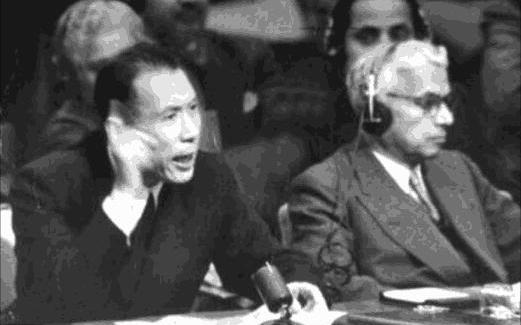Wu Xiuquan was one of the first outstanding diplomats after the founding of New China.

During the war years, this diplomat held important positions in the army, serving as deputy chief of staff of the corps during the Red Army; during the War of Resistance Against Japan, he served as the director of the First Bureau of the Central Military Commission; and during the War of Liberation, he served as the chief of staff of the Northeast Military Region.
Why was he uneasy when he was appointed deputy chief of staff of the Three Armies during the Red Army?
<h1 class="pgc-h-arrow-right" data-track="5" > a rare intellectual in the military</h1>
When Wu Xiuquan was born, his family was prosperous, and after the Xinhai Revolution, his grandfather and father, who worked in Yamen, were unemployed, and the family situation deteriorated.
He can be intelligent since childhood, and with his own ability, he was admitted to a free school and successively studied in the higher attached primary school and the higher attached middle school.
In 1923, under the influence of a major deputy, Chen Qiutan, he joined the Communist Youth League. In 1925, he was selected to study at sun yat-sen university in Moscow, SOVIET Union. In 1927, when he was preparing to return to China after completing his studies, Chiang Kai-shek launched a counter-revolutionary coup d'état, and the passage back to China was blocked and stranded in the Soviet Union.
After the organization decided to let them continue their studies in the Soviet Union, he was admitted to the Soviet Infantry School, where he learned military knowledge.
In 1931, Wu Xiuquan, who had been away from the motherland for 5 years, passed through Shanghai and arrived in the Soviet Zone to work in the Red Army School.
In 1933, as the political commissar of the regiment in the fifth term of the Red Army University, he was notified by the president Liu Bocheng to work as a translator for Li De, the military adviser of the Comintern.
His translator was also very difficult, Li De did not understand The chinese national conditions, nor did he understand the Red Army, and he always used a hard-hitting method to engage the enemy army. During the fifth anti-encirclement and suppression campaign, the base area was constantly decreasing, and the front-line commanders were very disgusted with this foreign adviser's blind command, and many people theorized with him. As a translator, for the sake of unity, the curse words were not translated.
At that time, Liu Bocheng had a disagreement with Li De as the chief of the general staff, and Li De thought that he was inferior to an ordinary staff officer and said rude things. Wu Xiuquan did not directly translate, but Liu Bocheng studied in the Soviet Union and knew Russian. Afterwards, he smiled and said to Wu Xiuquan: You are really a good old man!
< H1 class="pgc-h-arrow-right" data-track="14" > was appointed deputy chief of staff of the corps and was uneasy</h1>
After the Zunyi Conference in 1935, after Li De was relieved of command, Wu Xiuquan had nothing to do. He went to the organization and hoped to be reassigned.
Not long after, he was assigned to the Red Third Army as deputy chief of staff, the chief of staff Deng Ping was killed, and Ye Jianying temporarily took over the work. For such an arrangement, Wu Xiuquan was uneasy, and he felt that his ability was not enough, or it was better to lower his post.
Wu Xiuquan went to the political commissar Yang Shangkun and spoke out what he was thinking. Yang Shangkun said to him: Since it has been determined, let's do a good job!
Why was he entrusted with a heavy responsibility?
In terms of seniority, Wu Xiuquan was not low, and he joined the Communist Youth League in 1923; on culture, he studied in the Soviet Union and studied in infantry schools, and he always knew a little more.
He followed the troops through the forced crossing of the Jinsha River, the capture of the Luding Bridge, and the arrival of Maogong over the meadows, the Red Third Army was seriously reduced. The troops were downsized, divisional levels were abolished, and four regiments were formed. Wu Xiuquan asked to exercise in the regiment, and Peng Dehuai and Yang Shangkun agreed to the request and transferred the 10 regiments as chief of staff.
When the Red Army arrived in northern Shaanxi, he was transferred to the Red 15th Army as chief of staff of the 73rd Division. A few months later, due to an illness, he returned to the General Staff to wait for the assignment of work.
During the War of Resistance Against Japanese Aggression, he worked in the rear for 8 years, serving as the director of the Lanzhou office and being transferred to the post of director of the First Bureau of the Central Military Commission.
During the Liberation War, although he served as chief of staff in the northeast, he did not command the troops to fight like Liu Yalou. Worked in the military investigation department for 1 year, and after returning to the army, he was responsible for military production;
In 1948, the Northeast People's Liberation Army was divided into the Northeast Military Region and the Northeast Field Army, and he served as the chief of staff of the military region and was responsible for the rear work of the military region.